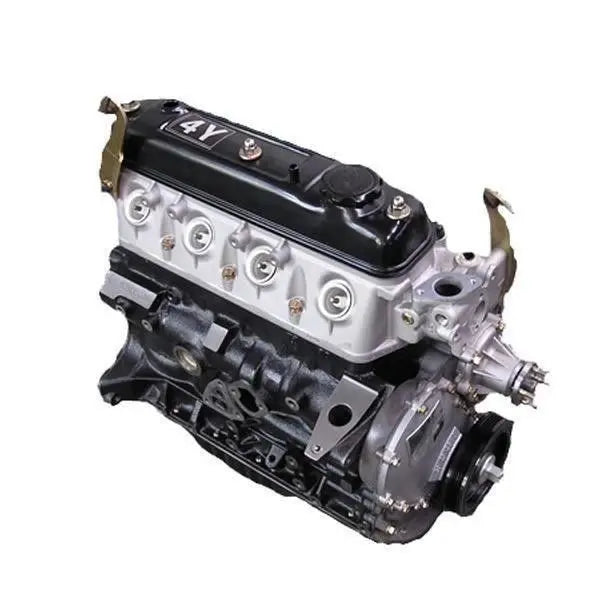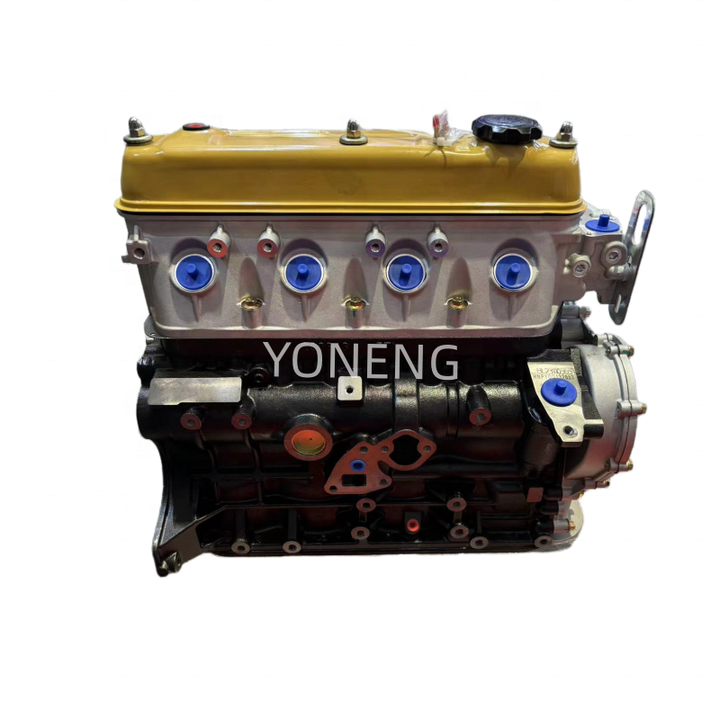The History and Evolution of the 4Y Engine in Automotive Engineering
The History and Evolution of the 4Y Engine in Automotive Engineering
Blog Article
The Ultimate Guide to the Engine: Key Insights for every single Cars And Truck Lover
Recognizing the engine is fundamental for any type of auto enthusiast, as it functions as the heart of the automobile and determines its efficiency. This overview gives a detailed examination of engine makeup, types, and the auto mechanics behind their operation, consisting of the ingenious innovations that are reshaping the automotive landscape. In addition, it highlights the essential nature of maintenance methods that can substantially influence an engine's life-span. The complexities of engine dynamics and the newest advancements in technology present questions that warrant more exploration. What might these insights disclose regarding the future of auto engineering?
Makeup of an Engine
Recognizing the anatomy of an engine is important for any type of auto fanatic aiming to dig deeper into automotive mechanics. An internal combustion engine largely includes a number of essential elements that operate in unison to convert fuel right into mechanical power.
At the heart of this system exists the cylinder block, which houses the cylinders where combustion happens. Piston motion within these cyndrical tubes is helped with by the crankshaft, which translates linear motion into rotational energy. Furthermore, the camshaft plays an important function in managing the opening and closing of the engine's shutoffs, making certain correct air-fuel blend consumption and exhaust gas expulsion.
Various other essential parts include the fuel system, which provides the engine with the essential gas, and the ignition system, in charge of initiating burning - 4y engine. The cooling and lubrication systems are also indispensable, keeping optimum operating temperatures and minimizing friction, specifically
Engine Types and Configurations
A varied series of engine types and setups exists, each offering unique advantages and disadvantages tailored to different driving needs and preferences. The most common engine types consist of inline, V, flat, and rotating arrangements.
Inline engines, including cyndrical tubes set up in a solitary line, are known for their simpleness and effectiveness. They are usually located in small lorries, offering an equilibrium of power and economic situation. V engines, defined by their 2 financial institutions of cyndrical tubes organized in a V form, give higher efficiency and smoother procedure, making them popular in sports and deluxe autos.
Level engines, or boxer engines, have actually horizontally opposed cylinders, which contribute to a lower facility of gravity, boosting vehicle stability. These are frequently seen in brands like Subaru and Porsche.
Rotary engines, although less typical, utilize a distinct design with a triangular blades and offer high power-to-weight proportions. They succeed in small and lightweight applications, primarily seen in Mazda lorries.
Each engine type offers specific efficiency features, weight distributions, and fuel efficiencies, guaranteeing that car enthusiasts can choose the right engine arrangement to match their driving design and automobile requirements.

How Engines Function
Engines, no matter their type or arrangement, operate essential concepts that govern their efficiency and performance. At their core, engines transform gas right into power via a series of controlled surges or compressions. This procedure typically includes four primary strokes: consumption, power, exhaust, and compression.
Throughout the intake stroke, the engine draws in a blend of air and fuel. In the power stroke, a trigger fires up the compressed blend (in gasoline engines) or the combination ignites spontaneously (in diesel engines), resulting in a fast linked here growth of gases that presses the piston down.
The effectiveness of an engine is influenced by various aspects, including the layout of the burning chamber, the sort of gas utilized, and the precision of the engine's components. Comprehending these basic concepts is critical for car lovers who look for to appreciate the complex mechanics behind their vehicles, along with for those aiming to improve efficiency through adjustments and tuning.
Advancements in Engine Modern Technology
In the last few years, developments in engine technology have actually considerably changed the automotive landscape, enhancing both performance and ecological sustainability. Among the most significant developments is the development of turbocharging and supercharging, which permits smaller engines to generate greater power results without giving up gas efficiency. This has resulted in a rise in the appeal of scaled down engines, offering producers with the ability to fulfill strict discharges policies while preserving performance criteria.
Furthermore, crossbreed and electrical powertrains are improving the engine standard. Crossbreed systems integrate interior combustion engines with electric motors, enhancing fuel intake and reducing emissions. Completely electric lorries (EVs) remove the combustion engine completely, relying upon advanced battery technology to provide instantaneous torque and outstanding acceleration.
In addition, the combination of man-made intelligence and equipment knowing in engine monitoring systems enables real-time optimization of performance criteria, boosting efficiency and responsiveness. Technologies such as variable shutoff timing and direct fuel injection additionally fine-tune combustion procedures, taking full advantage of power result while reducing waste.
As the vehicle industry continues to advance, these innovations in engine innovation will certainly play a crucial duty in forming the future of mobility, prioritizing both performance and sustainability.
Upkeep Tips for Lovers
Preserving an engine is as essential as the innovations that enhance its efficiency. Regular maintenance not just extends the life of your engine but likewise makes certain optimal performance.
Replace and check air filters regularly to make sure correct airflow, which is vital for combustion performance. A stopped up air filter can bring about lowered efficiency and enhanced gas intake. Check the he said coolant levels to protect against getting too hot, and change coolant according to the solution routine. 4y engine.

Verdict
To conclude, a complete understanding of engine click here to find out more makeup, types, and technicians is vital for automotive fanatics. The exploration of developments such as turbocharging and crossbreed systems highlights the innovations in efficiency and efficiency. Furthermore, routine maintenance practices, consisting of oil modifications and air filter checks, are important for guaranteeing optimum engine functionality and durability. Mastery of these principles promotes a much deeper appreciation for engine dynamics and enhances the general driving experience.

Engines, no matter of their type or configuration, operate on basic principles that regulate their performance and performance. In the power stroke, a spark fires up the pressed blend (in gasoline engines) or the combination stirs up spontaneously (in diesel engines), resulting in a rapid development of gases that pushes the piston down.In current years, advancements in engine innovation have actually dramatically changed the automobile landscape, enhancing both efficiency and ecological sustainability.
Report this page